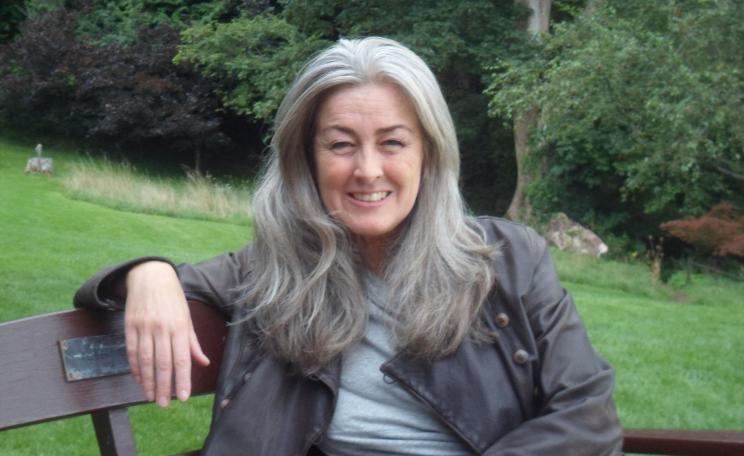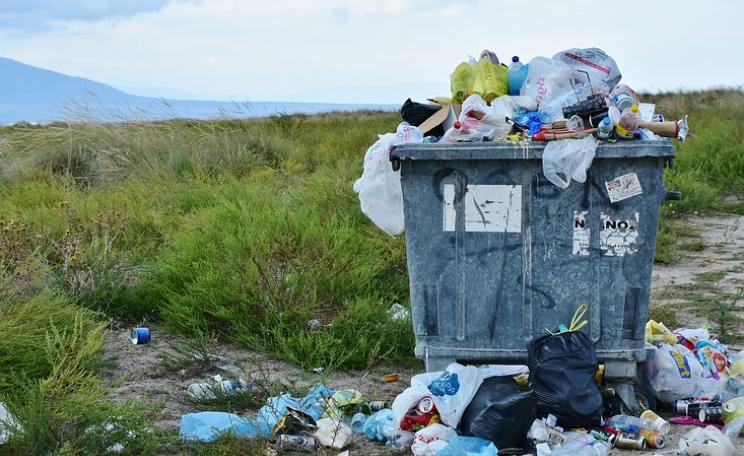Wales's biosecurity measures, combined with its small-scale badger vaccination programme, was astonishingly successful.
On 2nd September 2013 Owen Paterson announced to Parliament: "BTB is the most pressing animal health problem in the UK. The disease is getting worse and is spreading across the country.
"In the last ten years, BTB has cost the taxpayer £500 million. It is estimated that this will rise to £1 billion over the next ten years if the disease is left unchecked."
On the 9th September he released a further statement , in which he confirmed that the badger culls were under way.
"No country has successfully dealt with TB without tackling disease in both wildlife and cattle", he stated. "BTB is the most pressing animal health problem in the UK. The disease is getting worse and is spreading across the country."
A serious over-statement
But now we know - he was wrong. The incidence of BTB-infected herds was actually declining in the UK.
In mid-January Defra silently released the news that it had been "overstating" the figures for the incidence of bovine TB due to "glitches in data entries" since September 2011.
The numbers of herds 'not Officially Free of BTB due to a TB incident' - non-OFT for short - would have to be revised significantly downwards for 2012 and 2013.
And just this week, with just as little noise, fanfare or press release, the revised numbers appeared.
While there were some minor revisions to the numbers of new-herd incidents and the number of herds under movement restrictions, the real shock comes in the figures for the non-OFT herds.
During the very period that Paterson had claimed that BTB incidence was increasing, the number of non-OFT herds - those considered to have BTB or to be at serious risk of BTB - dropped.
To cut through the confusion
The figures are a little confused: they cover England, Wales and Scotland separately, but also include extra figures for herds for which no country was recorded.
In September 2013 these 'no country recorded' herds account for 96 herds (new figures) or 109 (old figures) - raising serious questions about the quality of Defra's record keeping!
So first, let's look at the UK aggregate figures for the number of non-OFT herds.
The old - wrong - figures stated that from September 2012 to September 2013, non-OFT herds increased from 5,050 to 5,961 - an increase of 911, or 18%.
Wales's biosecurity measures, combined with its small-scale badger vaccination programme, was astonishingly successful.
The new figures just released show they fell from 4,464 to 4,312, a reduction of 152 or 3.4%.
So at the very time that Paterson was claiming, in justification of the cull, that the disease was "spreading across the country", the number of UK cattle herds supposed to be BTB infected had actually dropped.
And what about Wales?
But it's in Wales that things get really interesting. The old (wrong) figures showed the number of non-OFT herds falling from 1,107 to 1,032 - decline of 6%. The new figures show a dramatic decline - from 1,015 to 775, or 23.6%
Meanwhile in Scotland the 'non-OFT' herds also reduced in number from 35 to 24.
But even as the BTB incidence in Wales and Scotland was falling, it was rising in England, from 3,359 to 3,417 - an increase of 1.7%.
Wales - no cull, but biosecurity and vaccination
The reason this matters so much is that Wales was, during this same period, carrying out an independent policy on controlling BTB.
This consisted of stringent biosecurity measures on cattle farms in a programme that commenced in 2008, together with badger vaccination against TB in an 'intensive action area' (taking in north Pembrokeshire and neighbouring parts of Ceredigion and Carmarthenshire), which began in May 2012.
Wales's withdrawal from the cull and commitment to vaccination was announced in March 2012 by Welsh environment minister John Griffiths:
"Bovine TB has a significant financial and social impact on farmers and the wider community in Wales. Last year alone, the Welsh government paid out just over £12m in compensation for cattle slaughtered. But I am not at present satisfied a cull of badgers would be necessary to bring about a substantial reduction in the incidence of bovine TB in cattle."
Opposed by the rural old guard
Griffiths was opposed in his policy by both the UK Government and the Farmer's Union of Wales, whose spokesman stated:
"Culling has consistently been shown to reduce bovine TB incidences in cattle herds, and since the 1970s thousands of herds have achieved TB-free status following badger culling."
Conservative and Plaid Cymru politicans were damning. Conservative assembly member and shadow rural affairs minister Antoinette Sandbach proclaimed:
"The minister has today hamstrung the bovine TB eradication programme by abandoning culling, despite voting in favour of that policy less than a year ago ... This U-turn is a betrayal of rural Wales."
And Plaid AM Llyr Huws Gruffydd thundered: "The Labour minister has displayed blind ignorance by disregarding the scientific evidence, and all because he has to fall in line with Labour's new policy in London.
"Wales is now swimming against the tide of scientific evidence that has seen England adopt a culling policy, with Northern Ireland also moving in that direction."
Environment Secretary Caroline Spelman also claimed that the badger cull would reduce infections in culling areas by 16%.
But now we know - Wales was right
The new figures say it all. Wales's biosecurity measures, combined with its small-scale badger vaccination programme, is proving to be astonishingly successful.
Wales saw a huge 23.6% fall in the number of 'non-OFT' herds - far more than the 16% falls that Caroline Spelman claimed a cull could deliver. Meanwhile in England, the number of non-OFT herds increased by 1.7%%.
Will Plaid Cymru and the Conservative politicians eat their words and apologise for their grossly misleading statements? I somehow doubt it.
But Owen Paterson may have little choice in the matter - because he was directly addressing Parliament, and 'misleading the House' is a serious matter.
His claim that BTB was "getting worse and is spreading across the country" was simply untue. His estimate that the cost of the disease would double to £1 billion per year was based on wrong figures and a false premise.
Could he now be forced to offer an ignominious apology to the House of Commons?
And much more importantly, will the Government now learn from Wales's successful experiment - which demonstrates the remarkable effectiveness of no-cull, biosecurity plus vaccination approach - and follow its shining example?
Lesley Docksey is a freelance writer who contributes articles to The Ecologist and other news media with international reach on issues of war, peace, politics and the environment.
See her other articles for The Ecologist.
Oliver Tickell edits The Ecologist.







